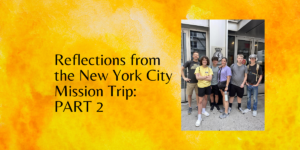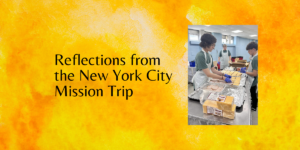February 26, 2017 – Transfiguration of the Lord
Proclaimer: Rev. Dennis W. Foust, PhD
Sermon: They Saw No One Except Jesus
Scripture: Matthew 17:1-8
What is it you should be doing while you are doing whatever it is that you are doing? Here’s an idea: invest yourself exploring the life God offers to you; a life of wholeness, joy, fulfillment, missional purpose, deep relationships and spiritual maturity.
This Wednesday, more than 2 billion Christians, about one third of earth’s population, begin preparing for Easter’s celebration. Easter is all about new life and new beginnings. As hours of sunlight increase and daylight hours lengthen, we open our lives to the Light of God to bring new life from within us like daffodils breaking through the hardened cold soil.
Easter is just beyond the next few weeks calling us embrace God’s hopeful promise of new life. Yet, many people never experience a new beginning. Some are best described by Richard Rohr in his observation, “The familiar and the habitual are so falsely reassuring and most of us make our homes there permanently.”1 Others are more like those who seem to live in a constant state of getting ready to get ready. You may have heard about the woman who yelled down the stairs, “I told you I will be ready in five minutes so stop calling me every half hour.”
If you could stand on tiptoe and see beyond the next seven weeks to Easter Sunday, what would you want to see God bringing back to life in your soul?
Someday, I hope to lead a St. John’s Pilgrimage to Israel. I will take you to Mount Tabor, one of my favorite places in the world; the site of the Transfiguration. A major reason why I appreciate Mount Tabor is because the tourist buses cannot ascend the narrow winding road to the pinnacle. Mount Tabor provides you opportunity for silence and reflection. From atop Mount Tabor you can watch sunrise over the Sea of Galilee and join with creation in morning praise. In the evening, you can watch the golden orb set into the Mediterranean Sea. It is a good place to consider what you should be doing while you are doing whatever it is you must be doing.
Atop Mount Tabor, I wrote in my journal, “On this mountain, Peter, James and John were overcome by fear as they heard the voice of The Living God and saw no one except Jesus. Lord, it is the desire of my soul to live beyond my fears, maturing in my trust of you, by listening for your voice and seeing Jesus in the midst of every situation and in the life of every person.”
This week, we begin six weeks of preparing our souls for Easter’s celebration. I ask you to consider what you want God to bring to new life or to bring back to life in your soul.
Elizabeth was born one of triplet sisters in Zurich, Switzerland in 1926; weighing in at two pounds. You may know Elizabeth’s important book, On Death and Dying, presenting what is now called stages of grief: Denial, Anger, Bargaining, Depression and Acceptance. Dr. Elizabeth Kubler-Ross’ vision of studying death and dying crystallized when she was 19 years of age, in 1945. She was a member of the International Voluntary Service for Peace helping in ravaged communities after World War II. In concentration camps, she noticed carvings in the walls where prisoners spent their final hours. One particular carving was repeated; butterflies. She saw so much devastation, despair and death that she did not believe in God or life after death. Yet, she was intrigued by the repeated carvings of butterflies.
In one of those concentration camps, Elizabeth met a girl. This girl had lost all her brothers and sisters, parents and grandparents in the gas chamber. The guards tried to squeeze her in as well, but there wasn’t room for one more person; so they pulled her out. However, she had already been crossed off the list of the living. So, in the records, she no longer existed. They never got back to her. She spent the rest of the war years in that concentration camp dedicated to staying alive so she could tell about the atrocities she witnessed.
When the people came to liberate the camp, she prayed, “Dear God, if I spend the rest of my life telling about all these horrible things, I would not be any better than Hitler himself. I would only plant seeds of hate and negativity.” So, she made a promise to God that she would share the visions of hope and determination shown by those who carved butterflies.
The last thing that girl said to Elizabeth Kubler was this: “There is the possibility of a Hitler in every human being! If we can acknowledge that a Hitler can emerge from inside of us and get rid of it, we can begin to live as God wants us to live.”
Elizabeth wrote, “I thought, ‘She is crazy, I don’t have a Hitler in me.’ A few days later, I hitchhiked back to Switzerland, because I was very sick. I was near death. I never made it home. They found me unconscious in a forest in Germany, with typhoid. I ended up in a hospital. I had been so hungry for I had no food in my stomach for three days and three nights. I suddenly realized in the midst of this hike, that if a small child appeared with a piece of bread in its hands, I would steal that piece of bread from that child’s hand. This was like an illumination in my head. I said, ‘Now I know what that girl means, that there is a Hitler in all of us.’ Depending on the circumstances, you can do horrible things, which you would never even consider when you have a full belly. That was the beginning of my journey. When I went back to Switzerland, I said I’m going to study medicine, and I’m going to understand why people change from beautiful, innocent, gorgeous children to turn into Nazi monsters; and what can change us otherwise.”
So, Dr. Kubler-Ross worked with terminally ill patients, and described the various stages people go through while grieving: Denial, Anger, Bargaining, Depression and Acceptance. She discovered through her interviews that terminally ill patients were asking questions she didn’t feel qualified to answer. Patients wanted to know what comes after death. So she asked a group of theological students to help her in her interviews with the patients, but they didn’t seem to be of much help. She called these theological students together and asked them: “How many of you, without any shadow of doubt, believe in life after death?” Not one student was confident enough to raise his or her hand. Dr. Kubler-Ross said, “I then knew why they were unable to help the patients with their questions about life after death. They were using the right phrases, but their own uncertainty was coming through in the interviews with the terminally ill patients.”
As she continued to work with patients, God brought back to life something inside of her soul. Her mind went back to see the walls of the concentration camp and the carvings of butterflies. She opened the soil of her life to the light of God. The butterfly became her symbol of the beautiful transformation she came to believe is to be the story of our lives as well as what occurs at the time of death. At the time of her death, Dr. Kubler-Ross was a member of a Church in Scottsdale, Arizona. She said, “People are like stained-glass windows. They sparkle and shine when the sun is out, but when the darkness sets in, their true beauty is revealed only if there is a light from within.”
Friends, in a few weeks, we will fill this room to celebrate the resurrection of Jesus. We will do so because we know the hope that is brought to life within us through this story.
But, let’s be honest. Most of our days are like that day in the lives of Peter, James and John atop Mount Tabor. They saw Jesus AND Moses AND Elijah. In other words, they saw Jesus as ONE OF their commitments. They were committed to follow Jesus; but they were also committed to the Law and the Prophets. At the end of this story, ‘they saw no one except Jesus.’
Imagine that Jesus is inviting you to Mount Tabor this morning. There, you see some multi-booth individuals and churches where there are divided loyalties between doctrinal beliefs, congregational practices, traditions, or political allegiances. And, then, you are allowed to see the lives of people and churches where they look at everything else through their life in Jesus.
If you could stand on tiptoe and see beyond the next seven weeks to Easter Sunday, what would you want to see God bringing back to life in your soul?
Through this season of Lent, look at all of the commitments of your lives. I pray that you will see all of them fading into the background as you look at them through your commitment to Jesus. He is offering to you new life and new beginnings. So, get ready to do what God wants you to do while you are busy doing all of the stuff you must do. May you notice how the flickering light of Christ within you reveals a butterfly on the walls of your soul!
Amen and AMEN!
_____________________________________________________
1 Richard Rohr, Falling Upward, p. xvii.
2 Elizabeth Kubler-Ross, On Death and Dying.









